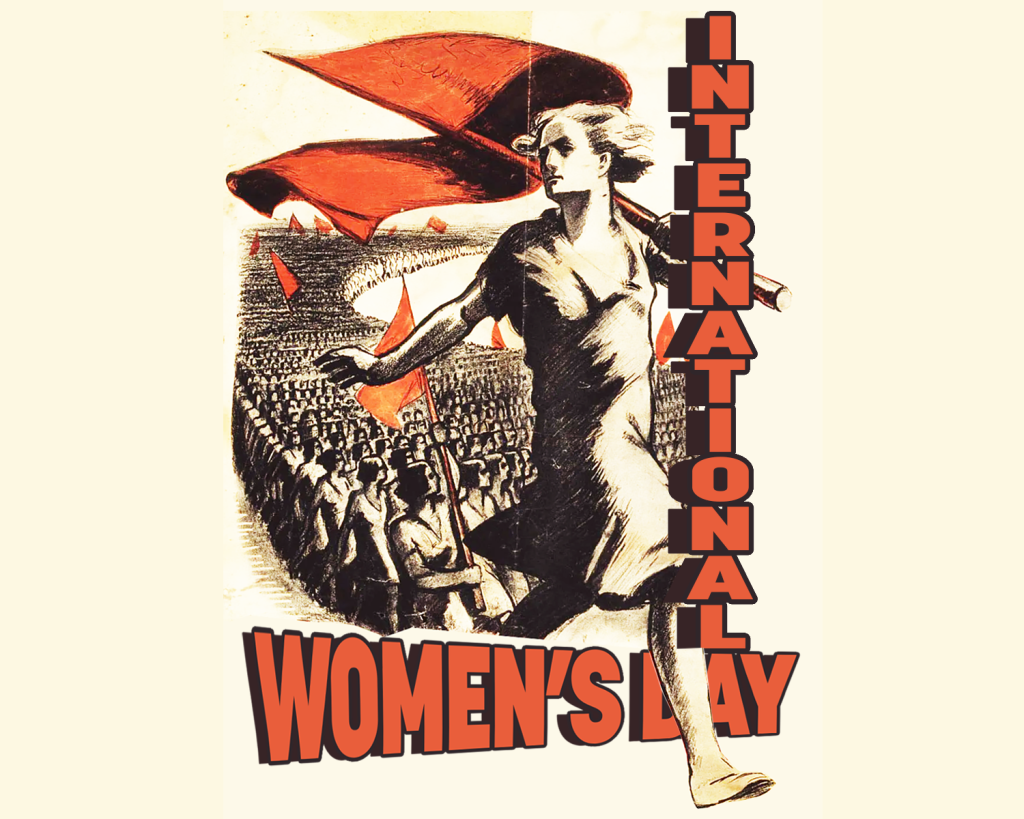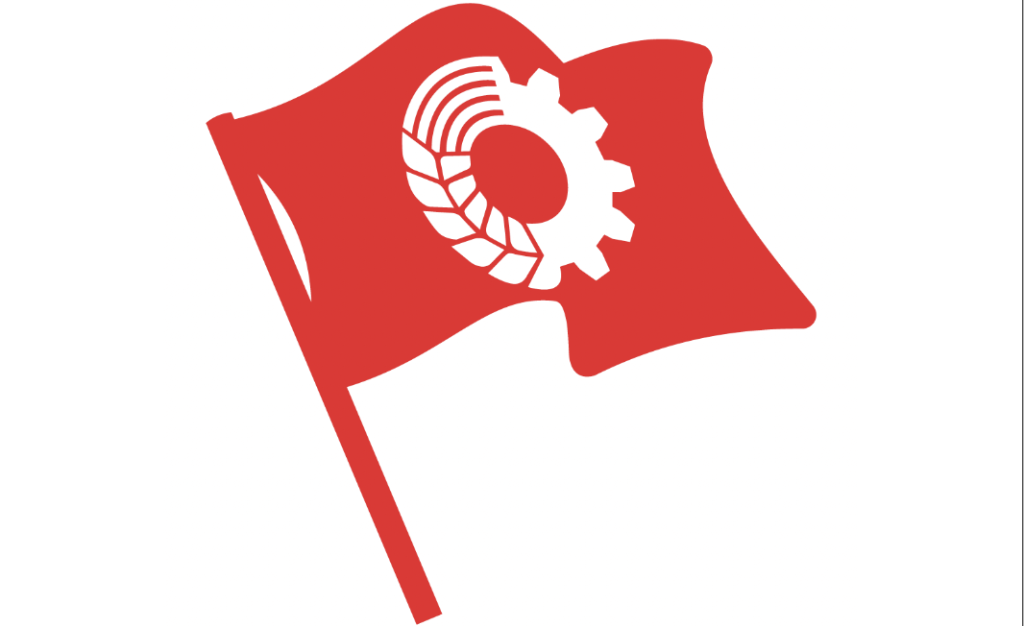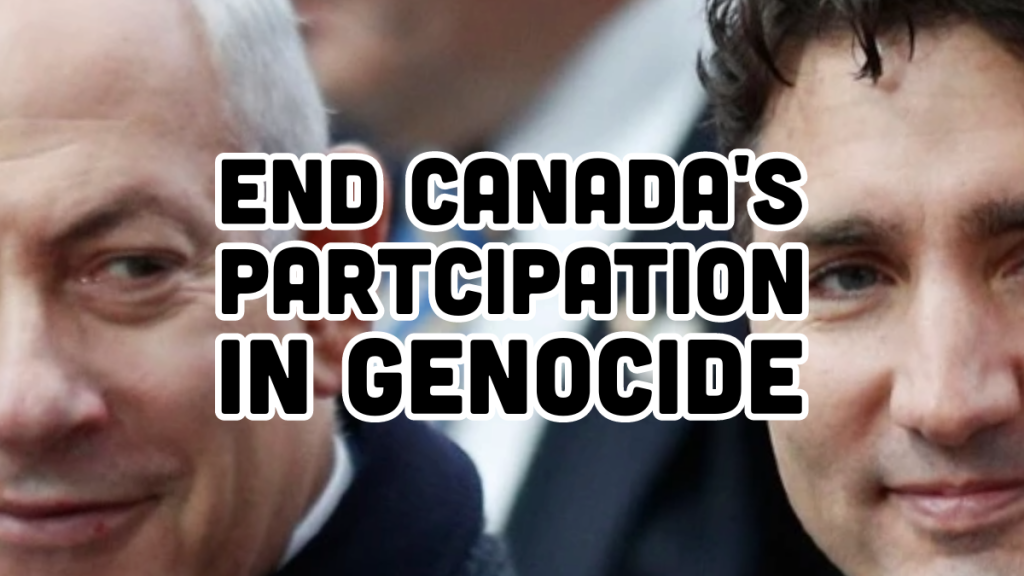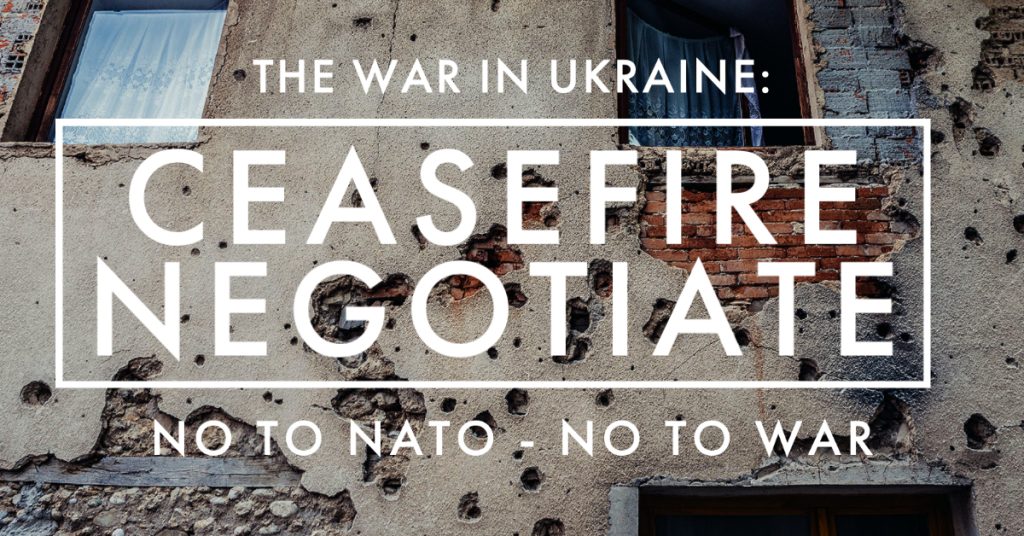The Central Committee of the Communist Party of Canada demands an immediate end to the so-called “Public Inquiry into Foreign Interference”. This inquiry is on track to become a political trial where the public will have no access to any of the evidence. The inquiry we really need is into CSIS (the Canadian Security Intelligence Service) and their collaboration with Global News and the Globe and Mail to smear political figures across the country, many of these Chinese Canadians, while creating a climate of McCarthyism that threatens democratic rights. This is the real political interference on full display in Canada today.
Continue reading »You searched for foreign aid - Communist Party of Canada - Parti Communiste du Canada
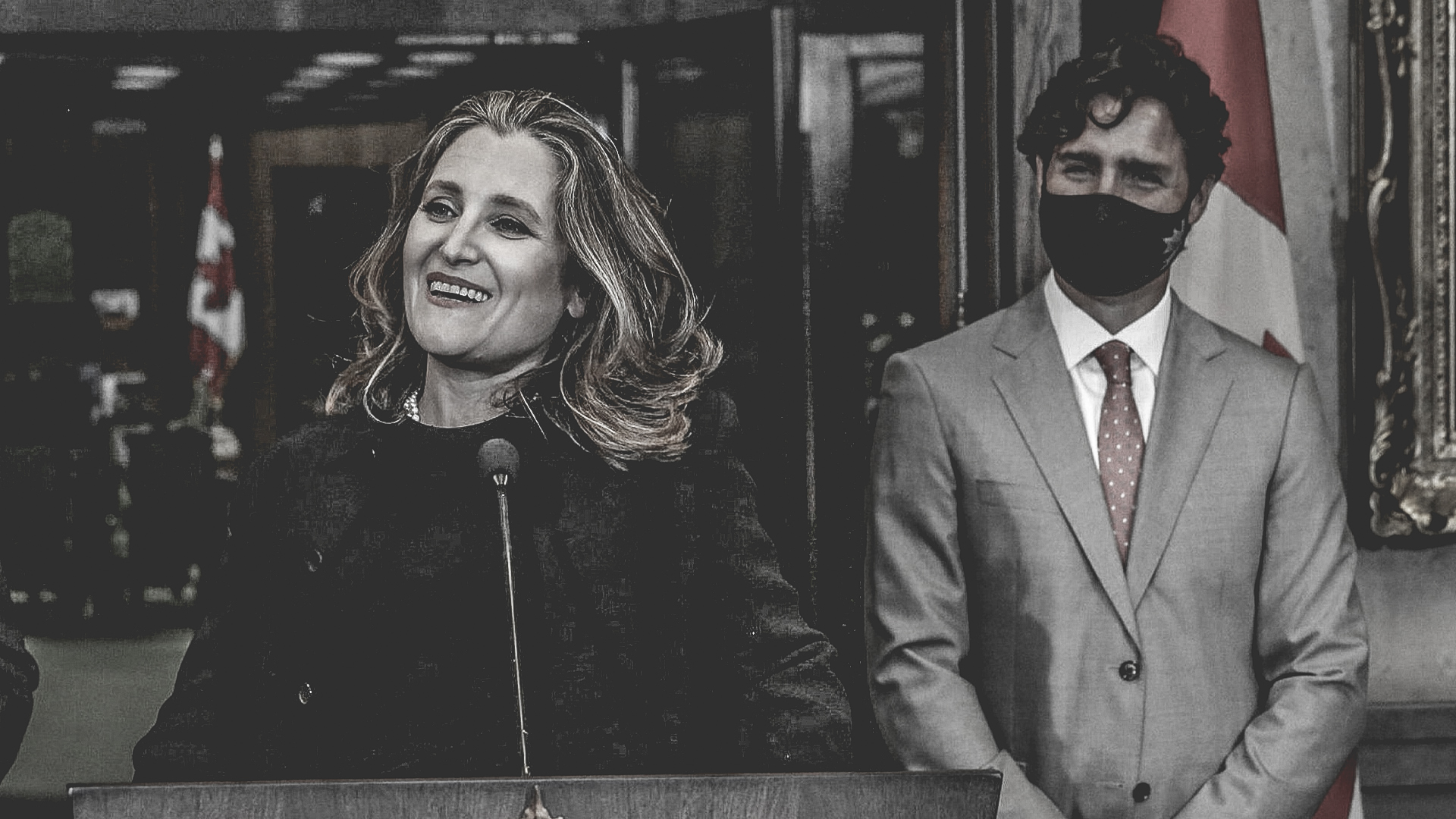
Federal Budget Delivers A Profitable Recovery for Corporations and the Wealthy
Funds for NATO, NORAD, Armaments and War
Paid for by the Working Class, the Unemployed, Women and Youth
Far from transformative, Monday’s federal budget was yet another long list of big gifts to Big Business in Canada, along with vast sums for NATO, NORAD, fighter jets and warships, ensuring that the working class will pay for a profitable recovery for corporations and the wealthy, and Parliament’s new foreign policy of war and regime change.
Continue reading »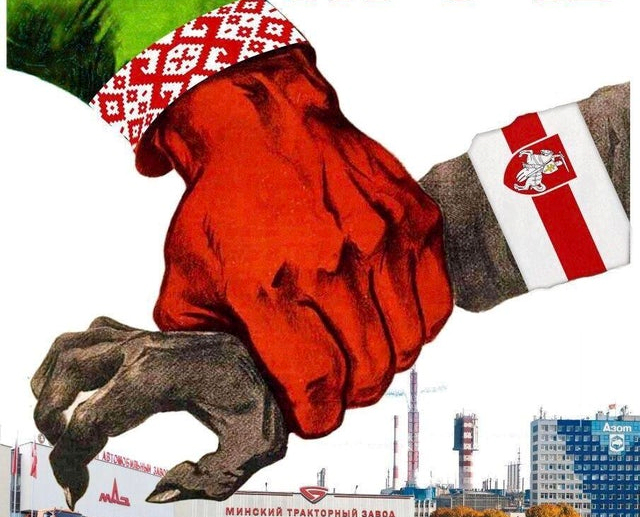
The Communist Party of Canada denounces the interference in the internal affairs of Belarus, by the United States, European Union and NATO countries. The Party calls on the Canadian government to immediately stop its involvement in the campaign to destabilize the country, and to normalize relations with the elected government of Alexander Lukashenko.
Continue reading »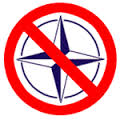
For all of its 65 years of existence, NATO has been an aggressive, imperialist alliance. It is the largest military organization in the world, committed to the doctrines of first strike and preemptive strike. NATO interventions regularly include the use of toxic weapons containing depleted uranium or white phosphor, and the alliance has repeatedly stated that nuclear weapons are a fundamental part of its military arsenal and strategy.
NATO is also an illegal alliance under international law. Article 52 of the United Nations Charter permits regional military organizations, but only if their activities are “consistent with the Purposes and Principles of the United Nations.” The most important principle of the UN is the prohibition of the use of force. Since NATO’s membership has always been beyond any commonly identifiable region, and since its primary activity has always involved the use of military force, its foundation contravenes international law.
Firmly dominated by US-imperialism, NATO is also a pillar of the European Union’s military strategy. Since the end of the Cold War, NATO has aggressively expanded both its membership and its theatre of operations. Currently, there are 28 NATO member states across North America and Europe, another 22 countries in the Euro-Atlantic Partnership Council (EAPC), and a further 19 countries engaged with NATO through programs such as the Mediterranean Dialogue, the Istanbul Cooperation Initiative and the Partners Across the Globe Initiative. This expansion reveals NATO’s fundamental character as the key military tool of Western imperialism. Continue reading »
Chapter 3: Canada in a Changing World
Over the past century the scientific and technological revolution has created immense opportunities to improve the quality of life. Never has humanity had such possibilities to develop both productivity and creativity, and at the same time reduce physical labour and working time. The capacity exists today to overcome hunger, disease and misery worldwide, to make possible a dignified life for all peoples, and simultaneously to pass the earth on, with all its varied ecosystems, healthy and viable to future generations.
Yet instead of realizing this potential, the vast growth of the productive forces and social wealth under capitalism is used to intensify the exploitation of human labour, and the plunder and destruction of the global environment. Instead of enhancing life, capitalism uses advances in technology for the most wasteful production of new generations of deadly weapons of mass destruction, and threatens the very existence of humanity and other species on our planet.
Identifying the current features and characteristics of the capitalist world system is therefore of utmost importance in determining the tasks which face communists and the revolutionary and progressive forces today. Significant changes have taken place in capitalist society during the past century. Imperialism, the highest stage of capitalism, was shaped. Monopolies were created, and came to play a decisive role in economic, social, and political life. Banking and industrial capital merged to create finance capital, along with a financial oligarchy. The export of capital took on greater significance in relation to the export of commodities. International monopoly associations of capitalists were formed, leading to a new stage in the internationalization of capital and production. State monopoly capitalism – the fusion of the most powerful monopolies, financial capital, and the bourgeois state machinery – came into being.
The development of imperialism, and the struggle between the main capitalist powers to re-divide the world, also led to worldwide inter-imperialist wars, to the rise of fascism, and to colonial and neo-colonial plunder and imperialist aggression against peoples in many countries.
The 20th century was also marked by important scientific, political and social advances. The most significant political event was the October 1917 socialist revolution in Russia, which brought the working class to political power, led to the formation of the first socialist state, and ushered in a new era in the development of human social relations. This epoch-making revolution, the decisive role played by the USSR in the defeat of fascism, and the consequent emergence of other socialist states, together comprising one third of the world’s population, had a profound impact on world developments.
The revolutionary trend within the working class movement grew and matured, and other socialist revolutions occurred. National liberation struggles succeeded in breaking the chains of colonial bondage throughout the “Third World.” Tremendous class and democratic struggles in Canada, the U.S. and other capitalist countries succeeded in winning many key social and economic gains for working people, and extended human rights for workers, women, and youth in many countries.
By the 1970s however, world capitalism entered a new phase. Capitalist accumulation in the imperialist countries faced intensified international competition, a technical revolution in communication and transportation, unbridled arms expenditures, and energy crises. Driven by a decline in the rate of profit, finance capital embarked on a neoliberal course characterized by sharply intensified exploitation of labour and the environment and accelerated capitalist globalization. A neoliberal world order began to take shape, based on increased capital exports and international capital mobility, the plunder of external sources of labour and natural resources, and the internationalization of production and markets dominated by imperialist monopolies.
Gradually, then more openly, state policies shifted toward privatization, deregulation, subcontracting, corporate tax cuts, free trade, attacks on labour and environmental standards, and the dismantling of social programs. This was not simply a shift of “policy” but a key part of the new conditions of international capitalist accumulation. All capitalist parties – conservative, liberal, social democratic – moved in the same general direction, at varying speeds.
This worldwide shift meant more impoverishment, both absolute and relative. Standards of health and education have declined. The ruin or stagnation of agriculture in the under-developed countries has led to massive migration of peasants into the cities, overwhelming the under-funded urban infrastructures, generating environmental crises. Around the world there has been an enormous increase in the reserve army of unemployed workers.
The new, neoliberal phase of capitalism has revealed more clearly the predatory, parasitic, and moribund character of imperialism. Capitalism as a system and its ruling class maintain their positions only at the expense of the vast mass of working people and the world environment. The anti-labour and anti-people policies of capitalist governments have led, not to social progress, but to social regression, worsening the immense problems facing humanity.
Current international developments are marked by imperialism’s barbaric and inhuman policies. Humanity is living through grim times due to the aggressive imperialist drive to dominate and subjugate, displayed more openly since the defeat of socialism in the Soviet Union and several other formerly socialist countries.
The dramatic reversals suffered by socialism in the last decade of the 20th century have shifted the balance of world social and class forces in favour of imperialism, forcing the world’s working class, progressive and anti-imperialist movements onto a defensive footing.
Imperialism is taking full advantage of the new situation arising from this historically temporary setback. The imperialist powers, and U.S. imperialism in particular, are intensifying efforts to extend their economic, political and military domination to every corner of the world. U.S. imperialism has embarked on a global strategy to extend its sphere of influence, and to capture all possible markets and sources of raw material.
Far from disappearing, all major contradictions that have shaped the world for the last century continue to deepen today. This creates objective conditions for a renewed struggle of workers and peoples, a struggle which is indispensable to open up prospects for a progressive alternative.
These contradictions include the contradiction between labour and capital internationally, as well as within each respective capitalist country; the contradiction between imperialism and the forces of world socialism; the contradiction between imperialism and peoples of the developing world; the contradiction between the leading imperialist countries themselves; and the contradiction between the capitalist mode of production and the global environment.
In a world dominated by capitalist production relations, the most important and basic contradiction remains that between labour and capital. Actions by international capitalist organizations and transnationals are causing the contradiction between the social nature of production and the capitalist appropriation of its output to become sharper. At any given time, any of these main contradictions could intensify so as to come to the forefront. Furthermore, the maturing of each contradiction acts upon and further accentuates the others, thus deepening the generalized crisis of capitalism.
The enormous potential for developing the productive forces opened up by scientific and technological advance is being distorted and limited by the logic of capitalist production relations and the drive for maximum profits. Whole sections of the main productive force – working people – are being devalued, cast aside and even destroyed. Unemployment, underemployment and lack of education represent an enormous waste of economic potential as well as a human tragedy. At the same time, the tendency to privatization and cutbacks in social spending means that research which does not seem to offer major profits to corporations is stifled, no matter how profoundly it might improve human or environmental conditions.
Capital itself is being accumulated and centralized at an astounding pace. Corporate acquisitions and mergers, stimulated by fierce competition to control the global market, and involving even the largest transnationals, are concentrating economic and political power in the hands of an ever dwindling super-elite of capitalists. Radical restructuring of industry and commerce, and the massive rationalizations and “downsizing” that result, are having a devastating impact on workers, farmers, professionals and other members of the middle strata, and even on small, non-monopoly firms.
Profound changes in workplace organization and rates of exploitation, combined with corporate-inspired neoliberal government policies, are dramatically changing the distribution of wealth and income in all capitalist countries.
Another very alarming trend is the increase of fictitious capital. Vast resources are no longer employed in productive enterprises, but are diverted to speculation in currency, “futures” and the stock market, where huge profits are siphoned off without ever generating increased production. This speculation worsens the anarchy inherent in capitalist production, giving rise to deeper cyclical and structural crises within countries, regionally and globally.
Structural adjustment policies and the neoliberal economic model in general are having a particularly devastating effect on women throughout the world. With the rise of class society, patriarchy began to emerge as a complex process that placed women in a position of economic, social, cultural and political inferiority. For centuries, patriarchy developed together with capitalism and has now become an institutionalized feature of capitalist development, forcing women to bear a double burden of exploitation and oppression. Increasing unemployment, environmental crises and the impact of regional conflicts all accelerate the process of further impoverishment and inequality for women around the world. Moreover, the agents of neoliberalism seek to identify and strengthen the institutions of patriarchy in all countries, in an effort to preserve profound social inequality and exploit it for the purpose of expanding imperialism.
The gap is widening between the levels of development of the advanced capitalist countries and the underdeveloped countries. Unfair trade relations, the usurious terms of debt repayment imposed by international banks and financial institutions, and the imperialist monopoly of high technology combine to extract trillions of dollars of wealth from the less developed countries to the imperialist centres, causing the disparity in the international division of labour and development to deepen. This increasingly uneven pattern of development is giving rise to growing instability in local and regional economies, leading to more violent and protracted outbreaks of crisis which imperialism is increasingly unable to contain.
Under the banner of “globalization,” imperialism is striving to re-structure all international relations in a profoundly anti-democratic direction. Multilateral bodies such as the WTO, the IMF and the World Bank, work hand-in-hand with transnational corporations, the big international banks, and the imperialist states. Countries which resist imperialist dictates are punished severely through disinvestment and capital flight, speculative attacks on domestic currencies, the withdrawal of foreign aid, the halting of technological transfers, trade penalties, and economic embargoes and blockades. The impact of such measures is especially hard on the peoples of the developing world.
Where such measures prove insufficient, imperialism does not hesitate to resort to crude military force to achieve its ends. Unilateral aggression by the U.S. alone, or with the support of other imperialist states, is occurring with alarming frequency. The ability of the imperialist powers to resort to military threats and overt aggression has greatly increased since the demise of the Soviet Union and the socialist community of states which had previously acted as a substantial counter-weight to U.S. imperialism.
One of the principal objectives of this all-sided offensive of imperialism is to extinguish the last remaining socialist and socialist-oriented countries. Utilizing economic blackmail, military pressure, and ideological penetration, and taking advantage of internal difficulties and contradictions, imperialism seeks to weaken and to ultimately dismantle socialism and to restore capitalist relations in these countries. The period of the “cold war” may be officially over, but the fight between the forces of imperialism and the forces of socialism is still very much alive. A major component of the imperialist offensive is an ideological campaign aimed at discrediting socialism and discouraging working people from rejoining the fight for a new wave of socialist transformations.
Imperialism is also seeking to consolidate capitalist restoration in the former socialist countries, to loot the social wealth of these countries, and to maintain them in a subordinate, dependent position. Contradictions within the imperialist camp itself are also sharpening. While the imperialist powers have a common interest in imposing a single global market which they can dominate and control, the three main imperialist centres – the U.S., the European Union (EU), and Japan – are engaged in a bitter struggle over the division of the spoils of global domination. As the world capitalist economy becomes ever more volatile, each imperialist centre seeks to protect its privileged position within those markets it already dominates (its so-called “sphere of influence”) while simultaneously attempting to penetrate and supplant its rivals in other national and regional markets.
Meanwhile, U.S. imperialism is escalating its struggle to shore up its dominant position, which was strengthened by the overturning of socialism in the former Soviet Union and socialist community in the early 1990s.This is evident not only in diverging and increasingly antagonistic relations between the three main imperialist centres, but also increasingly aggressive actions to restrain the development and growing influence of the Russian Federation and especially the People’s Republic of China, which is in the process of supplanting the U.S. as the world’s leading economic power. Economic pressures via sanctions and tariff wars, combined with military-strategic encroachment through the Eastern expansion of NATO and the U.S. military build-up in the Asia-Pacific, are sharpening tensions and could well lead to a global conflict, with all the dire consequences that would entail.
Imperialism, above all U.S. imperialism, exacerbates ethnic, religious and border conflicts, cultivates nationalism and chauvinism, instigates regional conflicts and wars of extermination, breeds extremely reactionary and obscurantist forces, and supports repressive and even fascist regimes.
The most dangerous reflections of this shift to political reaction are the militarization of international relations, the continuing arms race, and the imperialist campaign to weaken the role and authority of the United Nations in favour of “unilateralism” by U.S. imperialism and its NATO allies. The UN Charter and the principles of international law – premised on the full equality, sovereignty and territorial integrity of all states – are now routinely violated by the imperialist powers under the pretext of the “Responsibility to Protect” (R2P) doctrine and/or the ‘right’ to protect their national security interests. In these circumstances it is vital to defend these principles of international law, and to uphold the role of the United Nations, while pressing for its democratization.
Imperialism is the main source of the continuing arms build-up, the fomenting of regional conflicts, and the danger of more generalized, and even global war. As long as imperialism exists, there will be the danger of imperialist war. It constitutes the principal danger hanging over the world today, threatening the future of humanity and all life on the planet.
Finally, our planet is also reaping the harvest of centuries of subordinating nature to the blind play of capitalist market forces. Under capitalism, both labour and the natural environment are subordinated to and exploited for the capitalists’ overriding objective – surplus value (or private profit). As a mode of production and consumption, capitalism has raised the degradation of nature to historically unprecedented levels. Only liberation from capitalism will open up new possibilities for a fundamental change in humanity’s relationship with nature. As Frederick Engels said: “At every step we are reminded that we by no means rule over nature like a conqueror over foreign people, like someone standing outside of nature – but that we, with flesh, blood, and brain, belong to nature, and exist in its midst.”
All of these features represent the true face of the globalization process. Its main content is the intensified drive to concentrate and centralize the world’s natural and productive wealth under the control of a tiny elite of global finance capitalists, causing widespread impoverishment and unemployment for the working and oppressed peoples of the entire world.
The maturing of these contradictions deepens the systemic crisis of capitalism on a world scale, and inevitably evokes greater resistance and struggle by the working class and oppressed in all countries. Depending on the balance of class forces in each country, this takes many forms, including electoral battles, massive protests and strikes, and, in some situations, armed struggle. To control this rising opposition, imperialism is tilting more and more to political reaction, including constraints on individual and collective rights and overt oppression by the secret services and the machinery of the imperialist state.
Capitalism’s increasing reliance on political reaction and on state repression has led to the growth of far-right parties and movements around the globe, including fascist parties that have succeeded in electing representatives to parliaments, legislatures and municipal offices in many countries.
The rise of fascism is an indicator of the deepening systemic crisis of capitalism. It is not however a normal succession of one government by another. It is a substitution of one form of bourgeois class domination by another, that is, the replacement of bourgeois democracy by open terrorist dictatorship.
Immigrants and refugees fleeing from imperialist wars of aggression, economic and political oppression and environmental degradation, are most often the scapegoats of fascist parties and movements which seek to divide and terrorize the working class and liquidate all opposition to fascist rule. These fascist parties and movements represent “the most reactionary, most chauvinistic and most imperialist elements of finance capital” (Georgi Dimitrov) whose purpose is to crush the working class movement and popular resistance to capitalist rule and unbridled capitalist exploitation. Fascism is unbridled chauvinism and predatory war. Fascism is rabid reaction and counter-revolution. It is the most vicious enemy of the working class and all working people.
In many countries, including the US and Canada, right-wing populism is used to divert the growing anti-capitalist sentiments of those victimized by austerity and capitalist globalization, and by the unparalleled greed of the banks and the corporations. Like fascism, right wing populism capitalizes on the people’s anger, their grievances and outrage, using demagogy to denounce the ‘elites’, the ‘special interests’, and ‘corruption’ to demand fundamental change.
Like fascism, right-wing populism plays on division and inflames prejudice, particularly against immigrants and racialized peoples. It thrives on xenophobia, racism, misogyny, homophobia and transphobia. Its leaders present themselves as the people’s champion, disclaiming political allegiances that expose their anti-working class and anti-democratic essence. Unlike fascism, however, right-wing populism may maintain some elements of liberal democracy, like bourgeois elections.
Right-wing populism does not inevitably lead to fascism, as the long history of struggle against Social Credit in English-speaking Canada, and the Creditistes in Quebec, clearly shows.
However, in today’s context of increasingly reactionary measures being enacted to curtail and suppress labour and democratic rights, to curtail the rights of Parliaments and legislatures, and to intensify repression of socialism and the revolutionary movements in all of the capitalist countries, it is clear that right-wing populism often prepares the ground for the emergence of far-right political movements and parties including fascist and white supremacist organizations.
The struggle against reaction and fascism requires the unity of the working class, the people’s movements, and all those who value democracy, to engage in a mass struggle to defeat fascism where it holds power, and to prevent fascism from establishing a foothold where it is organizing and recruiting, in particular among youth and the unemployed.
The Communist Party calls for a mass struggle against fascism, reaction, and imperialist war whose advocates are very active in Canada, and demands the banning of fascist organizations. The Communist Party, the working people’s real defender and champion, also demands an end to austerity, which has created the social base for fascism to thrive, and immediate action to address the urgent needs of working people for jobs, higher wages and living standards, access to post-secondary education, universal healthcare and social programs, and for equality, democracy, sovereignty, and peace.
Contemporary social reality shows the need for the working class to struggle for a revolutionary response to capitalism: to sharpen resistance to international finance capital and the governments which carry out its class interests, and to bourgeois ideology which justifies its policies and actions. Only such a conscious class, anti-imperialist struggle can weaken the dominant position of monopoly finance capital, in Canada and internationally, and create the conditions to overthrow its power, and to build socialism.
While the international expansion of capital is transforming the role of national governments and restricting their economic regulatory function in favour of institutions such as the WTO, IMF and World Bank, the coercive function of the state remains a vital instrument to protect the interests of monopoly capital and to repress opposition. Therefore, the struggle for deep-going democratic and anti-monopoly reforms, and ultimately for working class political power must still be conducted primarily at the level of the national state in each country.
But given the global character of contemporary capitalism, class and democratic resistance at the state level, in and of itself, is no longer sufficient. Struggles waged in each country must be combined to an ever-greater extent with coordinated regional and global forms of struggle. An international democratic and anti-imperialist front is urgently required, to bring together the democratic, working class and progressive forces around the world to confront the unfettered power of international finance capital. Such a front or alliance can be forged around a program for genuine internationalization, based on: the principles of peace, non-aggression, and global disarmament; respect for the sovereignty of all states, for the equality and rights of all nations, large and small, the peaceful coexistence of different social systems, and the Universal Declaration of Human Rights; fair and balanced trade and economic cooperation; respect and promotion of cultural diversity; and protection of the global environment.
The international communist movement can and must play a central role in constructing such a broad front of international anti-imperialist struggle. Efforts to build greater cooperation, political cohesion, and unity of action among Communist and workers’ parties is therefore of decisive importance.
Anti-imperialist consciousness and militancy is growing and a new, resurgent phase is already maturing. The present phase, in which the international working class and revolutionary movement is in retreat, is temporary. The reversals suffered by socialism have not changed the historical direction of this epoch. The 21st century will be one in which the revolutionary forces regroup to repulse the offensive by international capital, and mount a decisive counter-attack in defence of humanity, world peace and our global environment. There is no alternative.
Next Chapter: The Canadian State; The nations and peoples of Canada and the crisis of democracy
Previous Chapter: Capitalism in Canada
In celebrating International Women’s Day, 2024 the Communist Party of Canada calls on all those who endorse the rights of women and who recognize March 8 as a day to celebrate past achievements and commit to continue the struggle for women’s rights, to make this year’s events a resounding call for progress on the main issues that stand between women and their right to full equality.
Continue reading »Report of the Central Committee, Communist Party of Canada, February 10-11, 2024
The International Situation
Since we last met, the international situation has become more acute, with US imperialism’s dangerous drive from Cold Wars to hot wars around the world, including the Middle East, Europe, Asia, Africa, India, and Latin America.
As the general crisis of capitalism deepens, specific problems also deepen. Everything is magnified.
Continue reading »The Central Committee of the Communist Party of Canada condemns the Canadian government’s ongoing support for Israel’s genocide and ethnic cleansing of Palestinians in Gaza as well as Canada’s role in provoking a potentially devastating wider regional war.
Continue reading »Report of the Central Commitee, Communist Party of Canada, June 17-18, 2023
International Situation: War
The danger of global war continues to grow larger as imperialism escalates its provocations against China, DPRK, and Cuba, and fuels the expansion of the war in Ukraine with massive exports of munitions and military hardware including tanks from Germany , Canada, the US and 11 other NATO countries; drones, and F-16 fighter jets promised for short order delivery from the US. These weapons are being used in the current Ukrainian offensive against Russia which NATO proposes should be accelerated with foreign troops joining Ukrainians on the battlefield. This would expand the war to other European countries with all the consequences that would entail.
Continue reading »The first anniversary of the February 24, 2022 military intervention by the Russian Federation into Ukraine is now upon us, and the U.S. and its NATO/EU allies, including Canada, are using the opportunity to launch a fresh round of ‘Russia bashing’ and calls for increased arms shipments to the Kiev regime to defend itself in the face of this Russian incursion.
The war itself continues to grind on, becoming a prolonged war of attrition, with each side striving to exhaust its adversary militarily, economically, and on the political-diplomatic front, regardless of the horrendous costs being inflicted. As one analyst phrased it, the war is on a one-way “escalation escalator”, as the imperialist powers led by the U.S. pour more lethal and advanced weaponry and equipment into the conflict, including main battle tanks, longer-range missiles and (potentially) modern fighter jets.
Continue reading »
